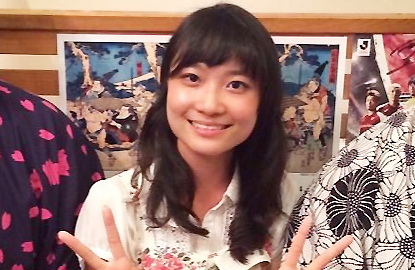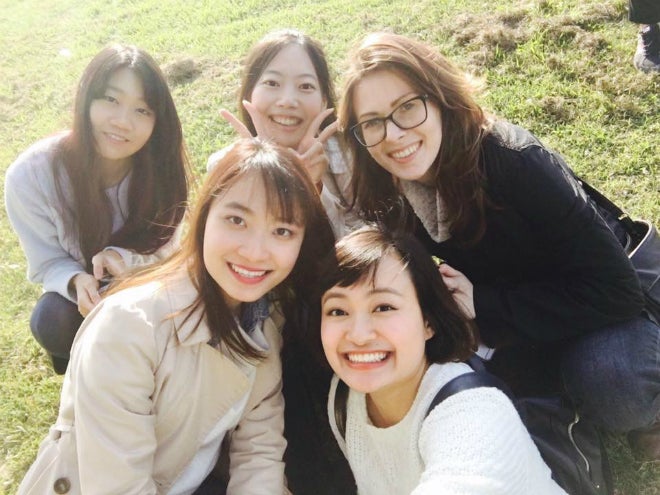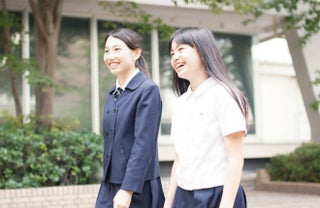Springでは、日本の大学で学んだ経験のあるシンガポール人の方に、日本で学ぶことの魅力や日本・日本語への興味についてお話を聞いています。
シリーズ12回目は教育省語学センター(Ministry of Education Language Centre, MOELC)※で6年間日本語を学んだ後、大阪大学経済学部を卒業して日本で働く、リー・ペイシュエン・リナさんです。
※シンガポールでは、小学校卒業試験(PSLE)で上位10%の優秀な成績を収めた生徒が、中学入学後にMOELCで、日本語などの第三言語を学ぶことができます。
Name: Ms. Lee Pei Xuan Rena
"Choose the less-travelled path. You might be surprised by how much you can grow as a person."
Currently working as Digital Marketer at British American Tobacco Japan
 Ms. Lee Pei Xuan Rena
Ms. Lee Pei Xuan RenaEducational Background
- Primary: Greenridge Primary School
- Secondary: Nanyang Girls’High School
- Junior College: Hwa Chong Junior College
- Prep School: Tokyo University of Foreign Studies
- Undergraduate: Osaka University
- Others: Institut de Catholique de Paris, LSF Montpellier Language School
Q. What led you to choose to study in Japan?
I participated in an exchange programme to Miyazaki in Kyushu when I was in primary school. This first contact with Japanese people and their beautiful culture sparked my interest in Japan, and inspired me to learn more about its society. It also made me realise that I could never really connect with Japanese people and understand Japan and its traditions well enough, without learning the Japanese language. This realisation subsequently made me sign up for Japanese language classes at MOELC, immerse myself in Japanese cultural activities and participate in more exchange programmes to Japan. When I graduated from Junior College, I wanted to experience living abroad on my own to become more independent and finally decided to sign up for a full immersion of Japan, by choosing to further my studies in Japan.
Q. How did you find the university and the programme in Japan?
My first year in Japan was spent at Tokyo University of Foreign Studies, where I took a one-year intensive course as preparation for enrolment into a Japanese University, under the MEXT Scholarship. There I studied the Japanese language in depth and learnt the basics of the Japanese economy, political system and society in general. Personally I would highly recommend this university and this course, as it thoroughly prepared me for my university education in Japanese. I also enjoyed the various cultural exchanges I had, while learning alongside international students from all over the world.
A year later, I went on to pursue my undergraduate degree in Economics at Osaka University, where lessons were held only in Japanese, but alongside other Japanese students this time. I chose Osaka University because it is well-known for its rigorous economic research and well-qualified professors. Furthermore, I wanted to experience a different side of Japan other than Tokyo, and was intrigued by Osaka as it seemed like an interesting place with its "oyaji gags" and warm, friendly culture.
 Me and my university classmates
Me and my university classmatesQ. What is your impression of Japan?
How is it different from before and after you came to Japan?
After living in Japan for almost 6 years, my impression of Japan as a very safe and convenient country to live in has not changed, with police posts strategically positioned and convenient stores available at almost every corner (if you live in the cities). I actually lost my phone twice while I was out on the streets in Osaka, but I managed to get my phone back on both occasions. This is just how honest and considerate people are, here in Japan!
However, what I found really surprising about the Japanese society when I first moved there, was its especially high degree of collectivism. Preserving the harmony within social groups is deemed to be very important in Japan, and certain cultural values such as 「気を使う」(pay attention to others’ needs) and 「雰囲気を読む」(read the atmosphere) that are entrenched in the society, trained me to be more sensitive and thoughtful when communicating with people.
Q. How has learning Japanese and studying in Japan helped you?
Learning the Japanese language has definitely been one of the best choices that I have made, and I am glad that I did not give up halfway. With a different language came a different vision of life; it has given me the valuable opportunity of connecting with Japanese locals, better understanding the Japanese society from a local’s perspective and indulging in a different way of life and culture other than my own.
The experience of learning Japanese and living in Japan, where cultural norms are different from my own in many ways, has also helped me grow to become a more open-minded person, and now I have a wider perspective on choices and life.
The language proficiency I acquired through my studies in Japan definitely gave me an edge when I was job-hunting in Japan. I finally decided to take my current job, as it enables me to thrive in an international environment where I get to utilise both my English and Japanese skills.
Q. You studied under MEXT (Ministry of Education, Science and Technology) Scholarships.
Any advice to those applying for it?
Yes, I was very fortunate to obtain the MEXT Scholarship, which fully-funded five years of my university education in Japan. For those who are interested in applying for this scholarship, I would advise you to prepare for the math paper in advance and explain clearly, your reason for choosing Japan, as well as what you want to achieve from your education in Japan during the interview.

























